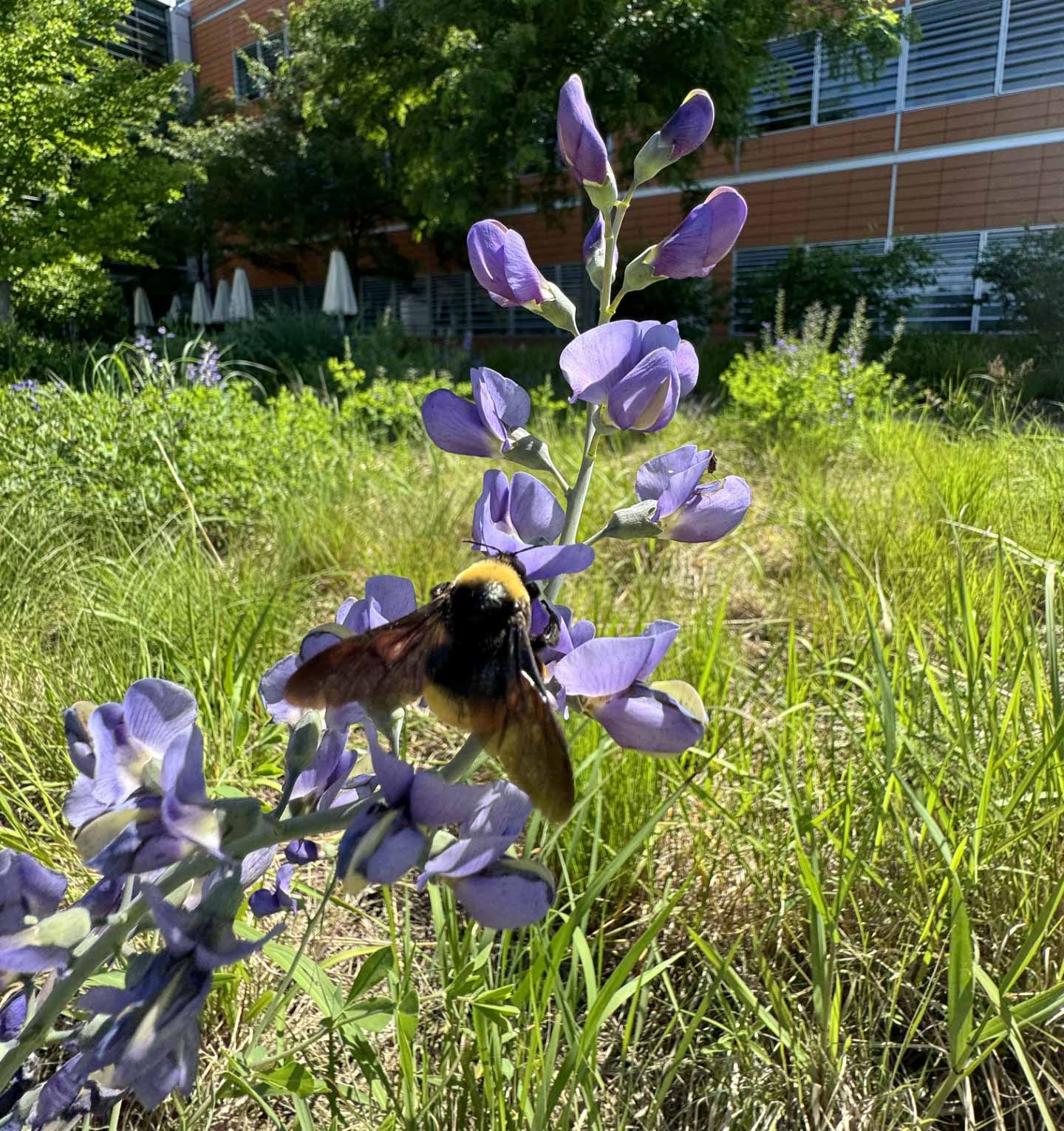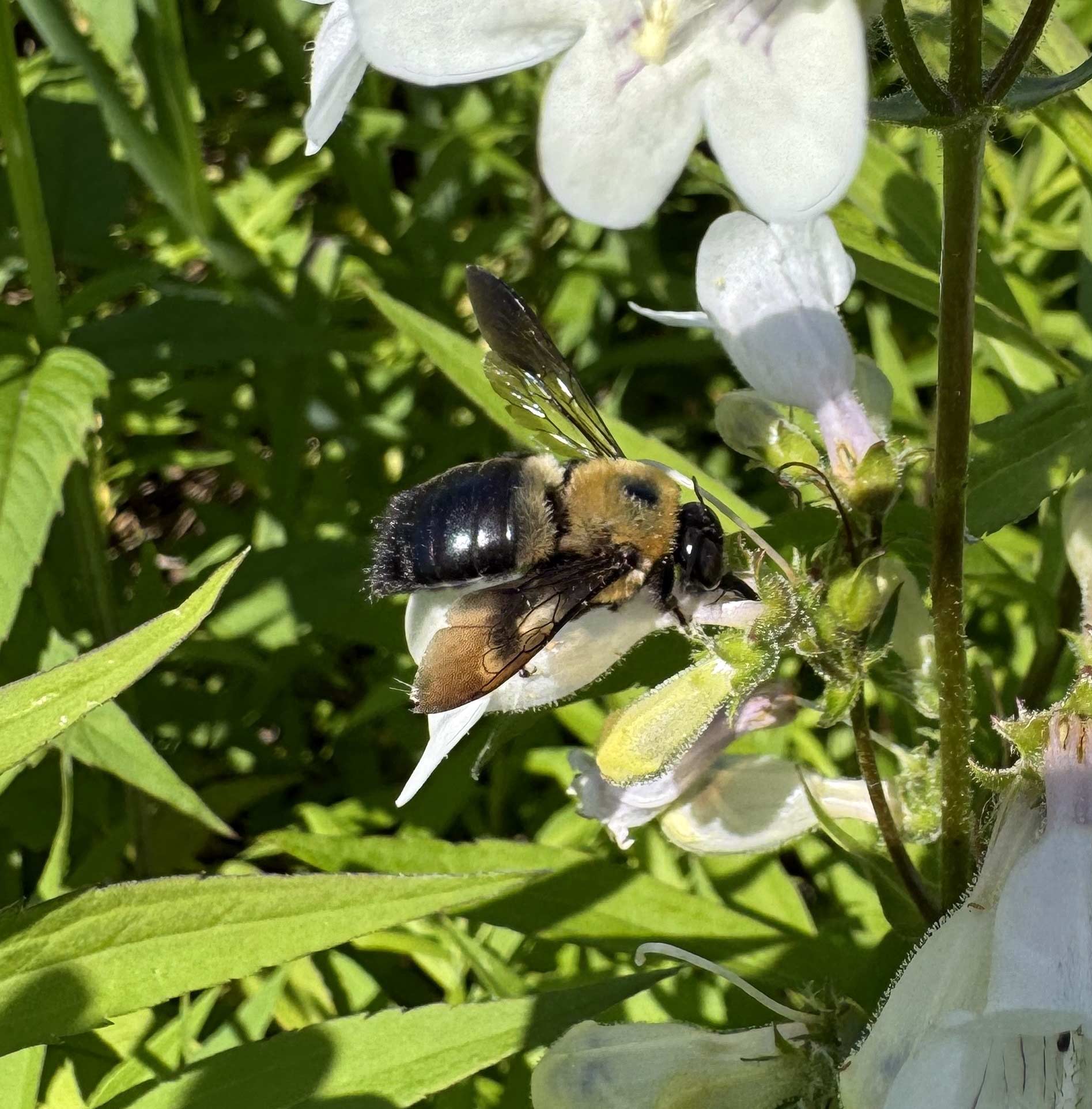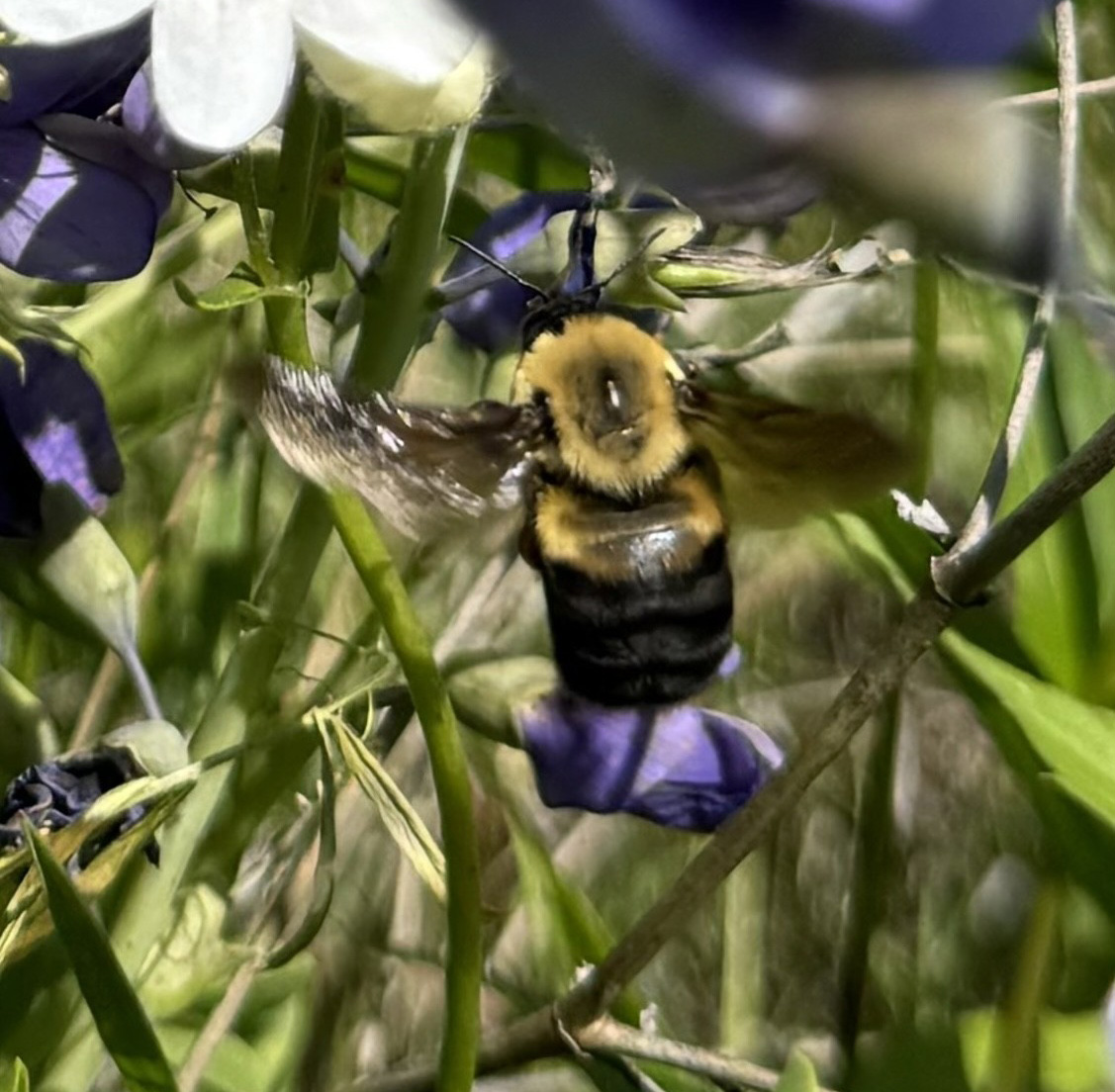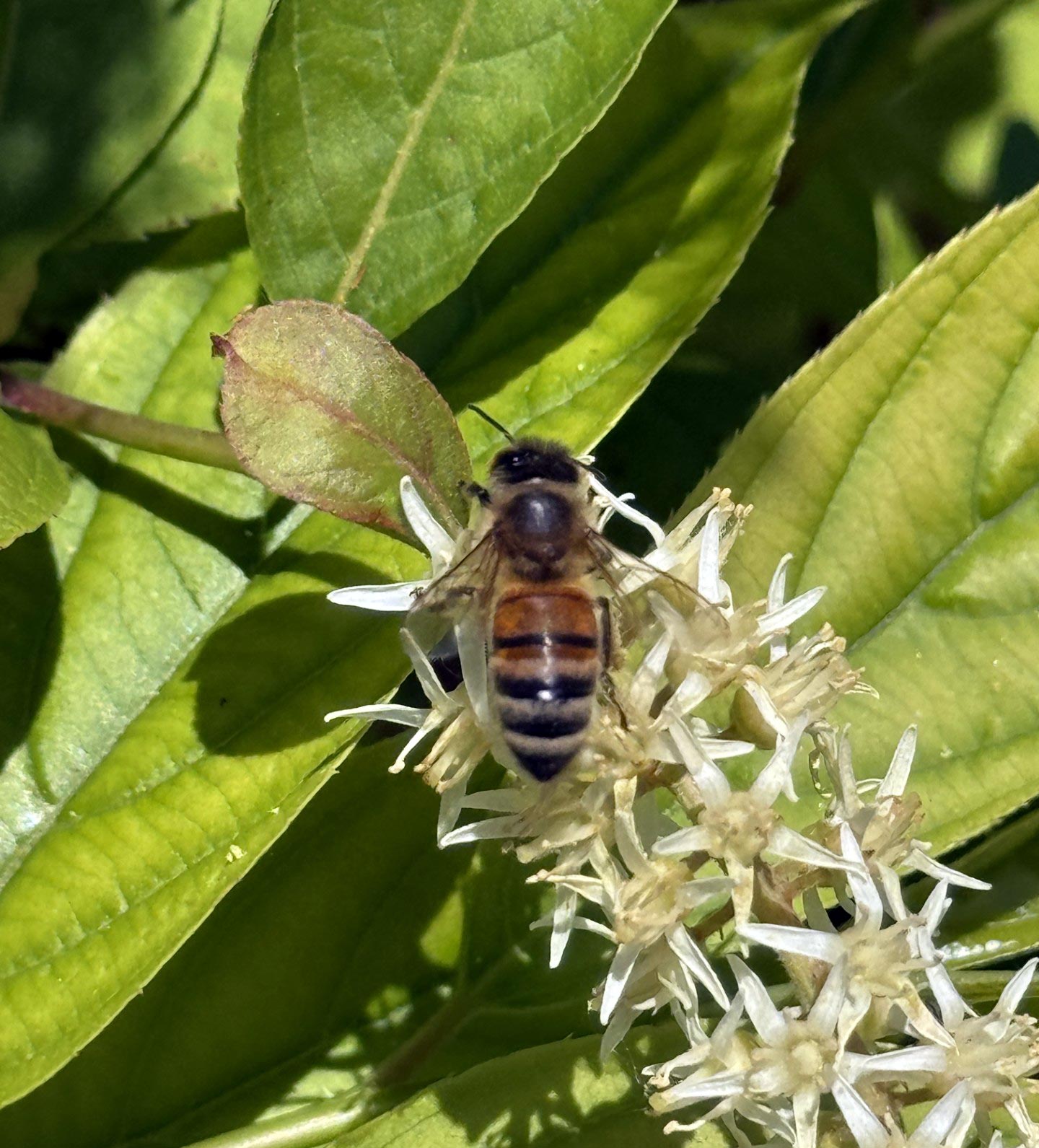Celebrating our Prairie Pollinators on World Bee Day 2024
Did you know one-third of the world's food production depends on bees1? Every year, between $235 and $577 billion (U.S.) worth of global food production relies on pollination from honeybees, native bees, and flies2. It's easy to see that bees are essential to food productivity and nutritional security, yet they are declining rapidly worldwide. As pollinators confront escalating levels of habitat loss and fragmentation, the significance of native perennial plant restoration efforts such as the Danforth Center prairie is growing.
For the past few years, Danforth Center Scientists Rabia Annette Polzin, Sharath Chandra Gaddelapati, and Bala P. Venkata have been documenting the diversity of bees and other insect pollinators in our prairie. They are trying to understand how the restoration and conservation of native perennial plants in urban landscapes, typically considered ecological wastelands, can aid in preserving insect pollinator biodiversity.
This year, Bala and his team used a non-invasive inventory of species method to assess spring bee diversity in the prairie. They specifically focused on identifying a group of bee species they repeatedly documented in the prairie during the spring and summer of 2019 to 2022. The identity of bees documented was established using the SHUTTERBEE identification guide3. This spring they documented the presence of the Black-and-Gold Bumble Bee (Bombus auricomus), Eastern Carpenter Bee (Xylocopa virginica), Brown-Belted Bumble Bee (Bombus griseocollis), and Western Honey Bee (Apis mellifera), which is also the state insect of Missouri. The repeated identification of these bee species over the years strongly suggests that the Danforth Center Prairie, with its diverse perennial native plants, provides stable floral resources and nesting sites to maintain pollinator diversity across multiple years. This underscores the ecological value of such urban perennial plant restoration efforts and emphasizes the need for their preservation and expansion.
The documentation of bee diversity is an ongoing activity, with a strong interest in expanding it into a community effort, including “Bee Engaged with Youth,” the theme of World Bee Day 2024. The goal is to develop this into a long-term pollinator data collection initiative and to collaborate with existing citizen science projects such as iNaturalist4 and Monarch Joint Venture5 to document insect diversity and enhance conservation practices.

Black-and-Gold Bumble Bee (Bombus auricomus)

Eastern Carpenter Bee (Xylocopa virginica)

Brown-Belted Bumble Bee (Bombus griseocollis)

Western Honey Bee (Apis mellifera)
References:
- https://www.weforum.org/agenda/2019/12/protect-pollinators-food-security-biodiversity-agriculture/
- https://www.bayer.com/en/agriculture/article/economic-value-pollinators#:~:text=Every%20season%2C%20pollination%20from%20honey,production%20relies%20on%20their%20contribution.
- https://shutterbee.net/protocol/
- https://www.inaturalist.org/projects/the-bee-conservancy-community-science-projects
- https://monarchjointventure.org/